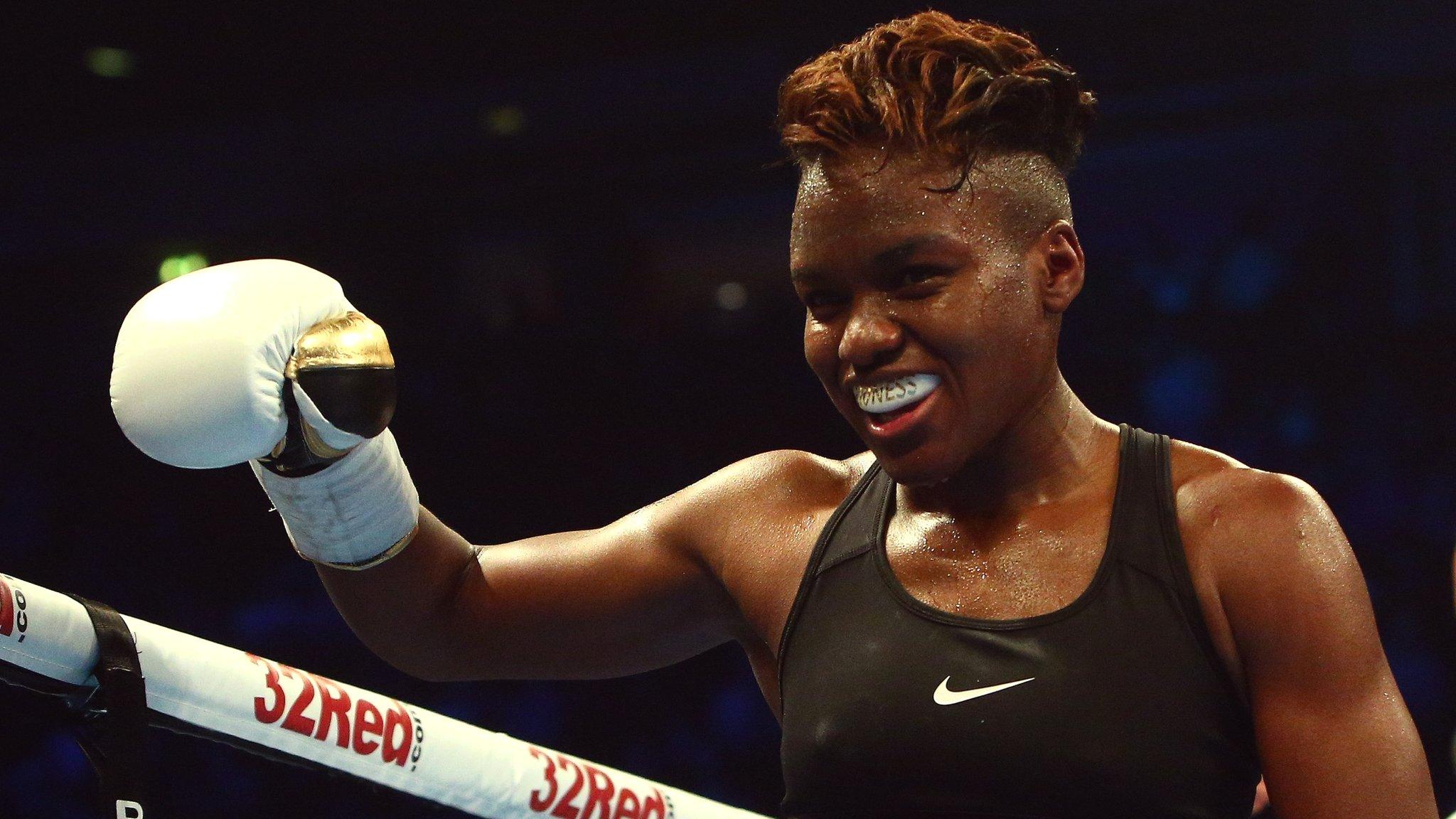Boxer, 14: 'I'm not knocked by social media bullies'
- Published
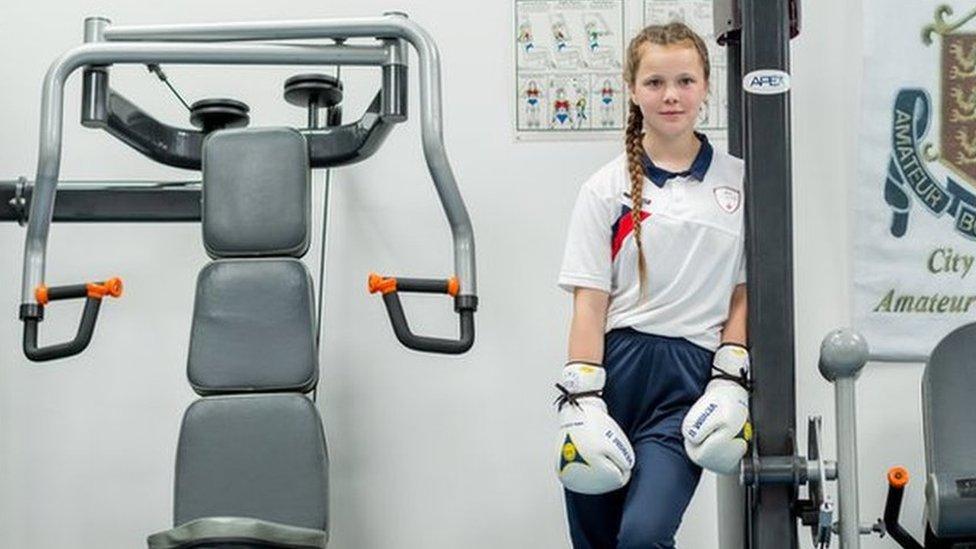
A survey suggests girls are more likely to be bullied online than boys
A 14-year-old amateur boxer is fighting back after online trolls told her that boxing was "not for girls".
Sophie, from Yorkshire, says girls should not be put off the ring - or other hobbies - even if it means they receive abuse on social media.
"People inbox us and say, 'You shouldn't be doing it, it's a boy's sport'," she said.
Girls are more likely to be harassed on social media than boys, according to a recent survey of 11-18 year olds, external.
Sophie said that she and other girls in her boxing club had been bullied by social media trolls - people who leave upsetting and abusive messages online.
"It's purely because we're girls and 'should' be wearing make-up and stuff," she said. "People started bullying me over it because of the way I dress."
Sophie admitted she has "deleted quite a lot of photos off Facebook" when people left negative comments about her wearing tracksuits in and outside the boxing ring.
Girls 'harassed' online
Nearly half of girls in the UK say they have experienced abuse online, according to a study of 1,002 people aged 11 to 18.
This could be an upsetting message from a stranger, a bullying comment from a social media "friend", or an image being shared without their consent.
Children's charity Plan International UK, external, which commissioned the survey, found that 48% of girls and 40% of boys had been harassed online.
Sophie said girls get "treated a lot differently on social media than lads".
"People don't like that because I do wear quite a lot of boys trackies and tops and stuff like that," she said. Speaking of her local boxing club, she added: "We post quite a lot of our photos on Facebook."
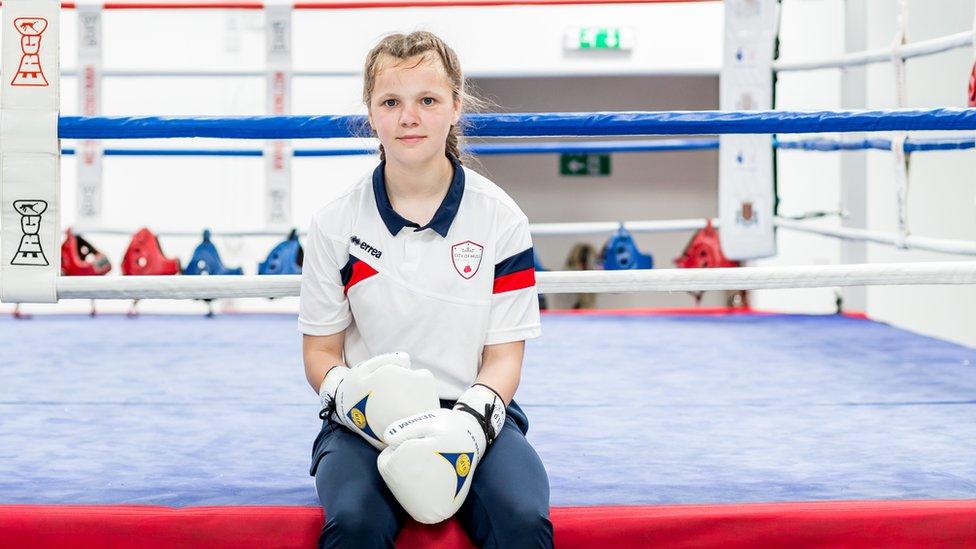
The recent success of Olympic champion boxer Nicola Adams and has in part helped shift attitudes towards girls and women boxing.
"Us girls we do quite a lot of boxing," Sophie said. "More of us like to push ourselves to the limit that we can."
But 15-year-old Ambrin, from London, says girls are often left to "protect themselves" against social media bullies.
She says she's modified her behaviour to try to avoid online abuse.
"I was always very careful if I was going to share a political opinion, I would do it under an account that didn't have my name," she said.
She uses Snapchat and used to use Instagram - but stopped after someone in her school also set up an account threatening to post nude pictures of girls in her year.
"The school couldn't really do much about it because they didn't know who was posting them," she said.
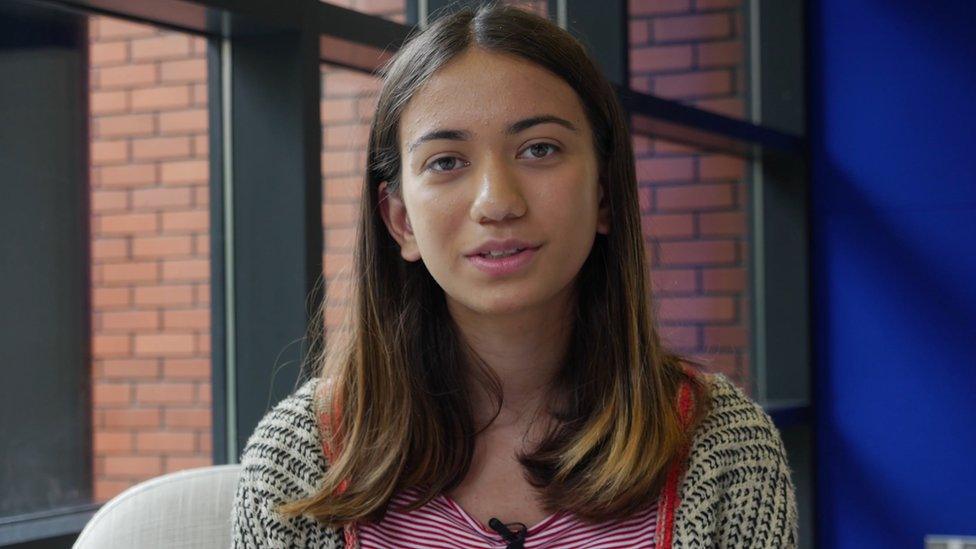
Ambrin says social media can put pressure on young people as "everything's being shared"
Tanya Barron, Plan International UK's chief executive, said girls risked "losing their voices" if they avoided posting pictures or comments because of fear of being bullied.
The survey found that 73% of girls and 59% of boys had chosen not to post pictures or comments for this reason.
"Girls are self-censoring on social media for fear of backlash from others," Ms Barron said.
She says children should be allowed to express themselves - whether that is through their sport, or because they have an opinion - without feeling threatened.
"We're calling on every one to stand up for girls online, calling out abuse when we see it and encouraging a space in which girls can find their voice," she said.

Ways to beat the online bullies
Advice from Childline's counsellors:
Don't keep online bullying to yourself or try to deal with it alone - tell an adult you trust
Don't reply to any nasty messages you receive, but keep it so you can show someone
Don't share, comment, or like any bullying posts - this could make the bullying worse
Tell the police if something is serious or talk to a Childline counsellor
Try an alternative to social media, such as a writing a blog or short story. This could be anonymous if you don't want people to know you wrote it
Someone might be making you feel bad by sending messages about you being different, but remember that being different is an amazing thing

- Published19 May 2017
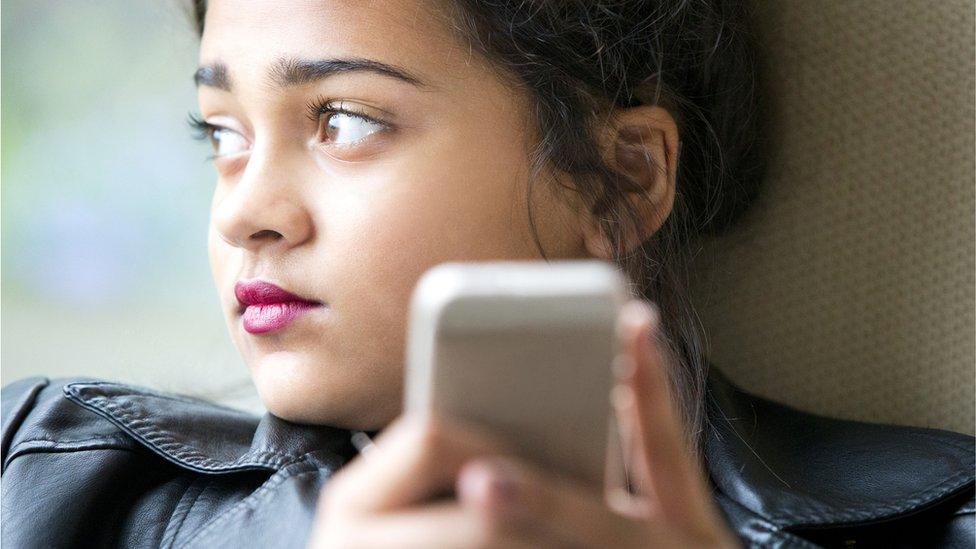
- Published17 July 2017
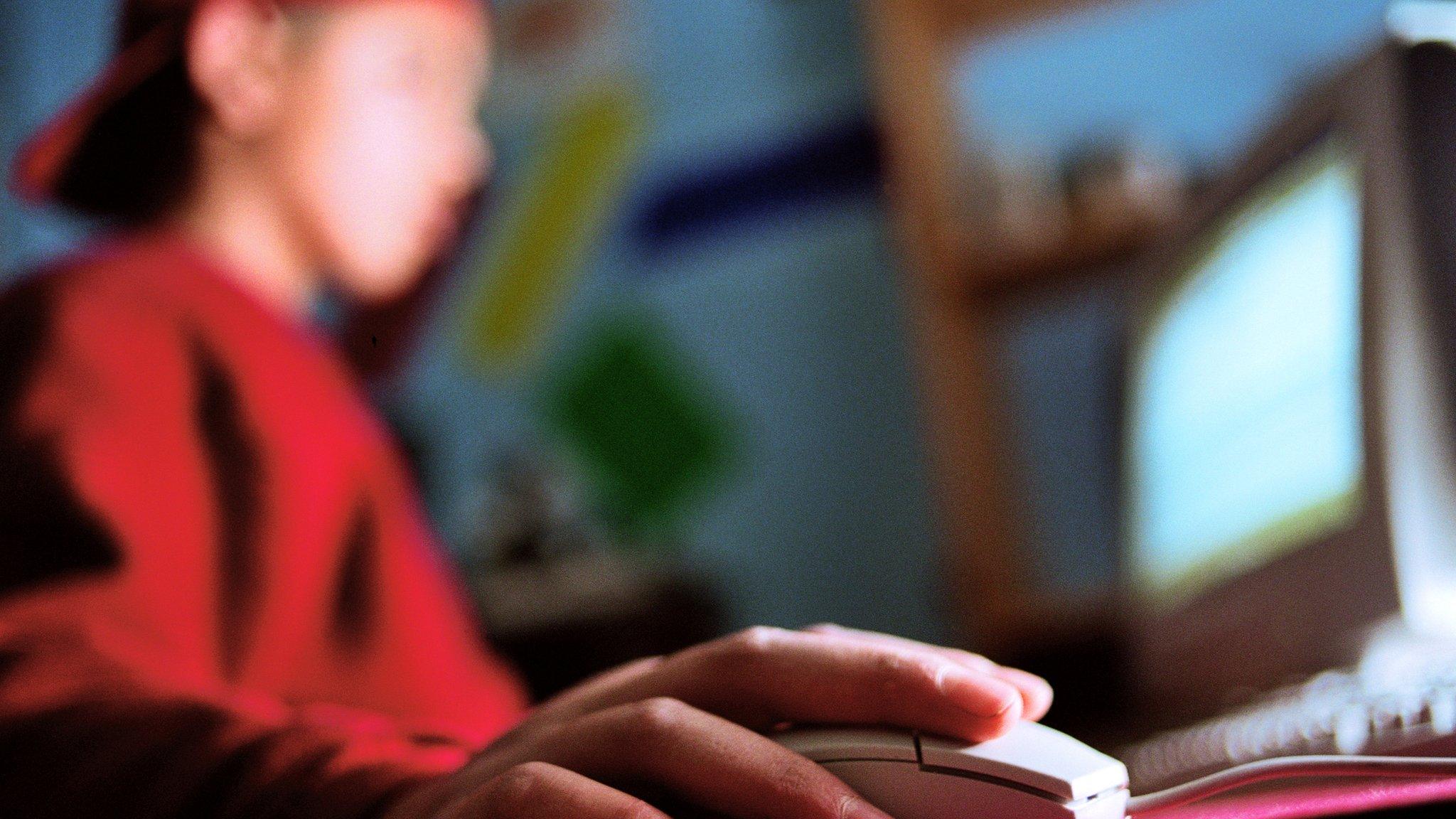
- Attribution
- Published8 April 2017
